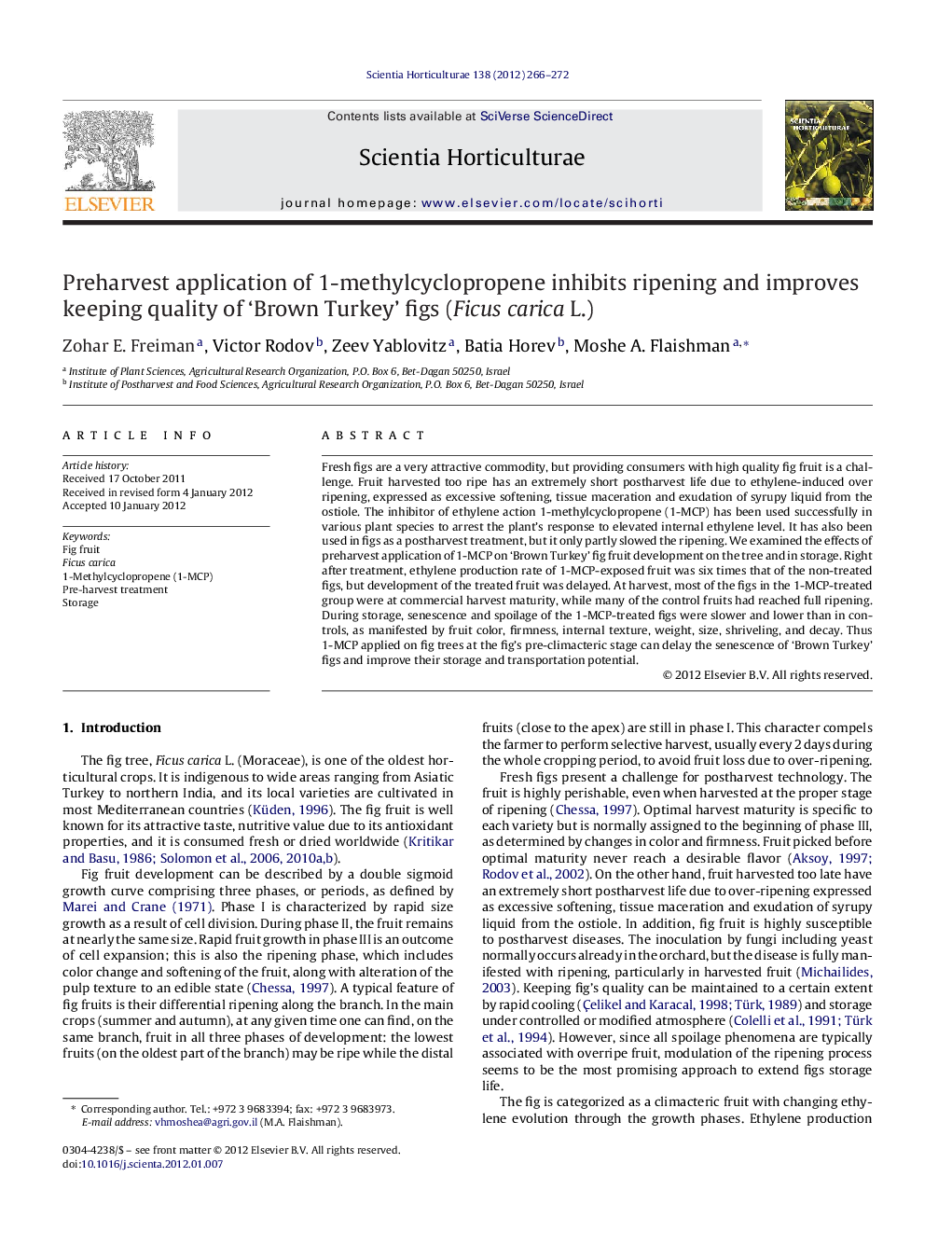| Article ID | Journal | Published Year | Pages | File Type |
|---|---|---|---|---|
| 4567722 | Scientia Horticulturae | 2012 | 7 Pages |
Fresh figs are a very attractive commodity, but providing consumers with high quality fig fruit is a challenge. Fruit harvested too ripe has an extremely short postharvest life due to ethylene-induced over ripening, expressed as excessive softening, tissue maceration and exudation of syrupy liquid from the ostiole. The inhibitor of ethylene action 1-methylcyclopropene (1-MCP) has been used successfully in various plant species to arrest the plant's response to elevated internal ethylene level. It has also been used in figs as a postharvest treatment, but it only partly slowed the ripening. We examined the effects of preharvest application of 1-MCP on ‘Brown Turkey’ fig fruit development on the tree and in storage. Right after treatment, ethylene production rate of 1-MCP-exposed fruit was six times that of the non-treated figs, but development of the treated fruit was delayed. At harvest, most of the figs in the 1-MCP-treated group were at commercial harvest maturity, while many of the control fruits had reached full ripening. During storage, senescence and spoilage of the 1-MCP-treated figs were slower and lower than in controls, as manifested by fruit color, firmness, internal texture, weight, size, shriveling, and decay. Thus 1-MCP applied on fig trees at the fig's pre-climacteric stage can delay the senescence of ‘Brown Turkey’ figs and improve their storage and transportation potential.
► ‘Brown Turkey’ figs were exposed to 1-MCP already on the trees, at climacteric onset, 3 days before harvest. ► The treatment enhanced ethylene production but retarded the on-tree fruit ripening. ► No ethylene stimulation by 1-MCP was observed in figs at earlier development stage. ► Preharvest 1-MCP treatment delayed postharvest senescence and extended fig storageability.
